 During the European and International Booksellers Federation conference at the Frankfurt Book Fair last week, Fabian Paagman, EIBF co-president and general director of Paagman, a bookstore with locations in The Hague and Delft in the Netherlands, discussed how he and his sister turned around their 67-year-old family business. In the midst of the financial crisis in 2009, Paagman recalled, the government of the Netherlands decided that all school books would be free. At that time, school books made up around 40% of the store's turnover and around 90% of its profits.
During the European and International Booksellers Federation conference at the Frankfurt Book Fair last week, Fabian Paagman, EIBF co-president and general director of Paagman, a bookstore with locations in The Hague and Delft in the Netherlands, discussed how he and his sister turned around their 67-year-old family business. In the midst of the financial crisis in 2009, Paagman recalled, the government of the Netherlands decided that all school books would be free. At that time, school books made up around 40% of the store's turnover and around 90% of its profits.
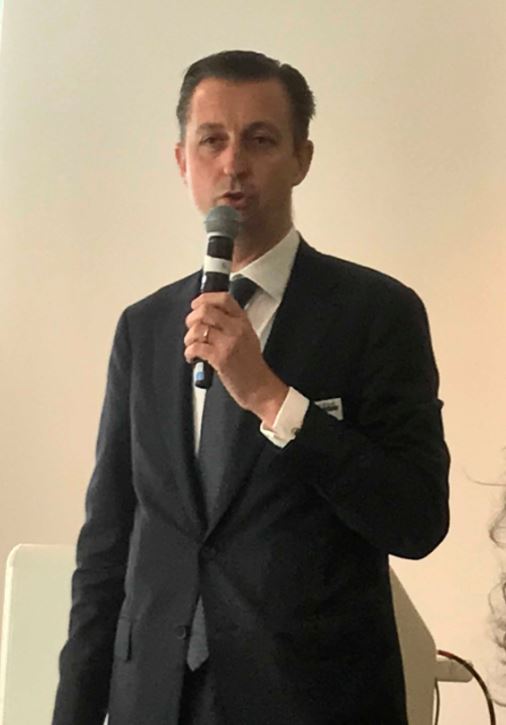 |
| Fabian Paagman |
Over the next few years, Paagman compensated for that lost revenue by heavily reinvesting in the business. They built a children's bookstore seven years ago, opened a PostNL service desk inside their flagship store in the Hague, grew their events programs and expanded the store's hours. They bolstered their online sales business, created several business-to-business programs, and started a loyalty program for customers. In 2014, they opened in a new store in a location that had once belonged to Polare, the biggest book retailer in the Netherlands, which had gone bankrupt that same year, and earlier this year opened a new store in Delft.
Noting that convenience was key, Paagman called the restrooms the "most expensive square meters" in his stores. The restrooms were closed for three months earlier this year while the cafe was being renovated, and Paagman and his colleagues "saw and felt how heavily these restrooms were being used." He continued: "We put a lot, a lot, a lot of money in it, we're not charging anything for it, but we also think it is one of the key aspects and key attractions for our store."
---
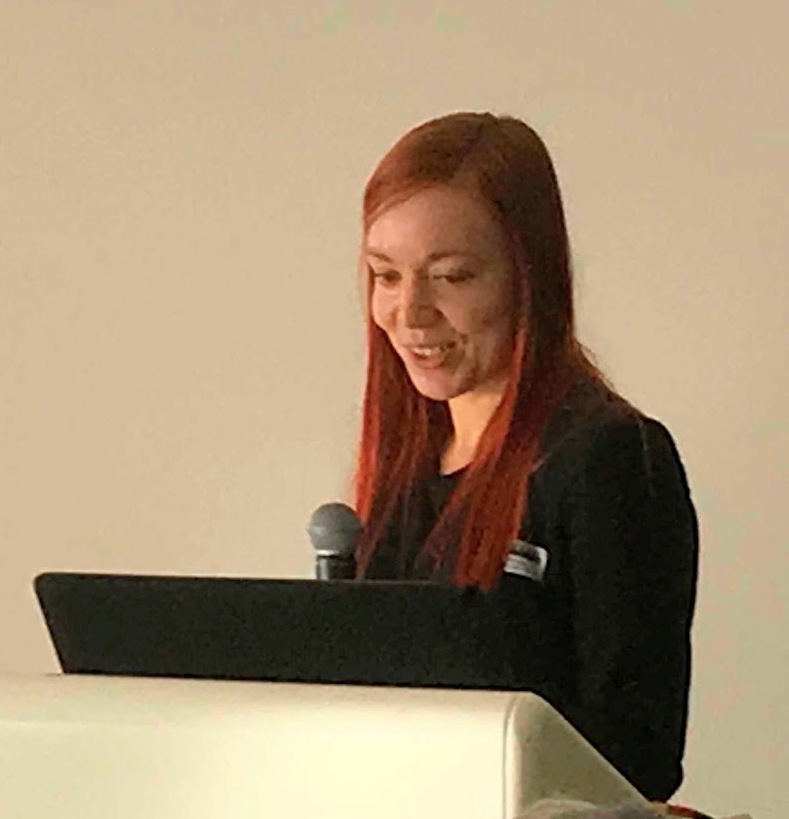 |
| Nora Bechler |
Nora Bechler of the Börsenverein, the German book industry association, shared some sobering information about the German book market, which has lost 6.4 million book buyers over the last five years. German consumers, she said, are not only buying fewer books but also reading less in general, with many increasingly spending their time online and watching streaming video services. And while this trend is much more pronounced with younger people, it is evident across all age groups and with people from all sorts of backgrounds.
There was cause for hope, however. The Börsenverein study also found that many people reported feeling overwhelmed by the pace of daily life and the constant pressure to be active online and on social media, and want a way to unplug and "decelerate." Many people also had fond, nostalgic memories of books, though they said they felt they didn't have enough time to read anymore. The key, Bechler said, would be for publishers and booksellers to find ways to draw attention back to the book, make books more prevalent in the public discourse, and create the sort of community feeling around books that exists around certain television shows.
---
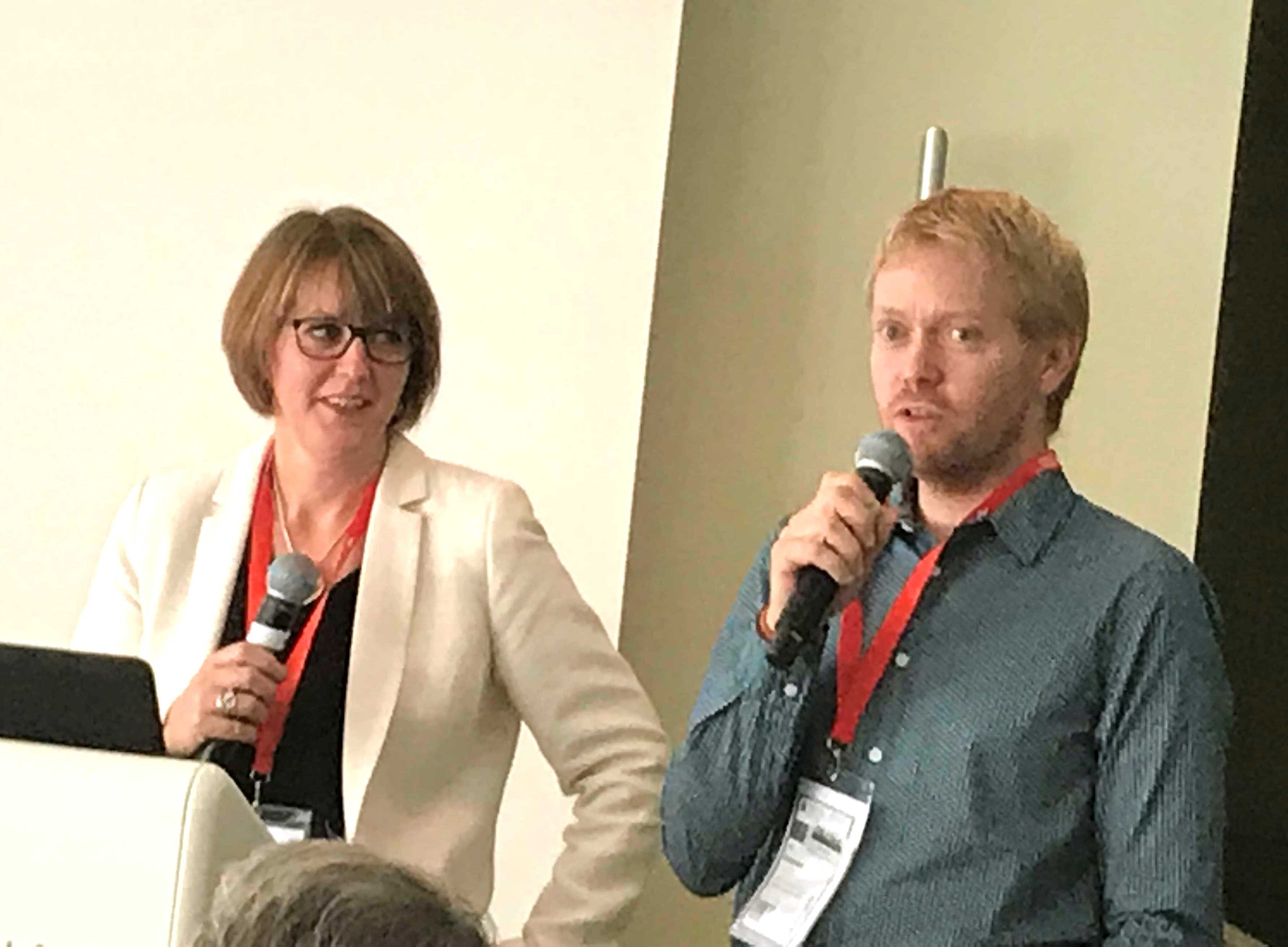 |
| Meryl Halls and Nic Bottomley |
Meryl Halls, managing director of the Booksellers Association of the U.K. and Ireland, and Nic Bottomley, president of the BA and co-owner of Mr. B's Emporium of Reading Delights in Bath, England, shared some news about what's in store for their association. In addition to newly created task forces focusing on diversity and inclusion, sustainability and environmental responsibility and professional development and best practices exchange, the BA is looking at ways it can help high street retail in the United Kingdom as a whole.
"The answer is in the high street and is in the physical, and it's in embracing that," Bottomley said, after alluding to the "worry show" of the German book market report. "You want to be digitally aware, but actually it's selling the bookseller, it's selling the physical person, the knowledge, the expertise, the geekery."
Halls also discussed a BA initiative of the past few years that has brought senior publishers out of their offices to work in independent bookshops as guest booksellers. "The booksellers get the publishers to open boxes and hoover and clean the shelves and open the front door," Halls said. "And a lot of them had epiphanies once they've been working in the bookstores." She went on to encourage "anyone from any country" to try a similar program--it's led to "a lot of changed relationships." --Alex Mutter
 "On a weekend where many of us were otherwise saturated with distressing news about our ever-divided country, Ross [Gay, author of The Book of Delights] inspired us with his poetic meditations on the wonder and magic of daily life.... Marlon James was also on the ticket that morning, and I'm way too big of a fan to pass up that opportunity. The fact that Laurie Halse Anderson and Leif Enger (both of whom I've had the good fortune of hearing speak before) were also going to be there certainly didn't hurt. But after more than 27 years of bookselling, you'd think I'd know that the meaning and power of the event comes not merely from the speakers but from sitting amongst my friends and colleagues of the book world and sharing in the powerful stories from the stage together. The delight I had that morning was indulging in the act of participation....
"On a weekend where many of us were otherwise saturated with distressing news about our ever-divided country, Ross [Gay, author of The Book of Delights] inspired us with his poetic meditations on the wonder and magic of daily life.... Marlon James was also on the ticket that morning, and I'm way too big of a fan to pass up that opportunity. The fact that Laurie Halse Anderson and Leif Enger (both of whom I've had the good fortune of hearing speak before) were also going to be there certainly didn't hurt. But after more than 27 years of bookselling, you'd think I'd know that the meaning and power of the event comes not merely from the speakers but from sitting amongst my friends and colleagues of the book world and sharing in the powerful stories from the stage together. The delight I had that morning was indulging in the act of participation....








 After a difficult year for its book business, W.H. Smith, the U.K. travel, stationery and book retailer with most shops in downtown areas, train stations and airports, plans to
After a difficult year for its book business, W.H. Smith, the U.K. travel, stationery and book retailer with most shops in downtown areas, train stations and airports, plans to  During the
During the 



 The Association of University Presses (AUPresses) has chosen "#TurnItUP" as the theme for this year's
The Association of University Presses (AUPresses) has chosen "#TurnItUP" as the theme for this year's 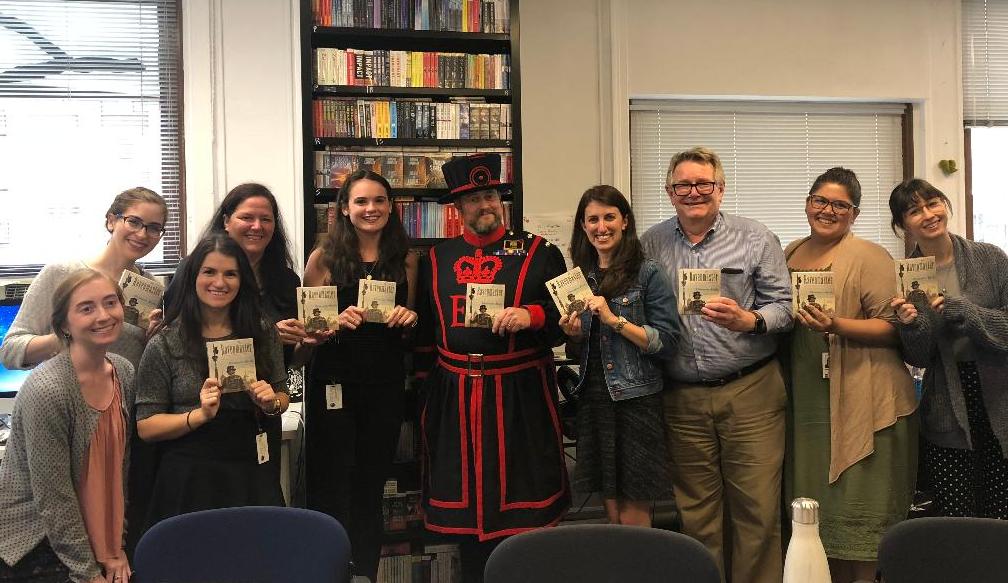 Christopher Skaife, Yeoman Warder of Her Majesty's Royal Palace and Fortress of the Tower of London, and author of The Ravenmaster: My Life with the Ravens at the Tower of London (Farrar, Straus and Giroux), poses with the team at Macmillan Audio. Skaife is the first active Ravenmaster to write a book while in service and was required to ask Her Majesty's permission to travel to the United States with his official uniform--without any ravens.
Christopher Skaife, Yeoman Warder of Her Majesty's Royal Palace and Fortress of the Tower of London, and author of The Ravenmaster: My Life with the Ravens at the Tower of London (Farrar, Straus and Giroux), poses with the team at Macmillan Audio. Skaife is the first active Ravenmaster to write a book while in service and was required to ask Her Majesty's permission to travel to the United States with his official uniform--without any ravens.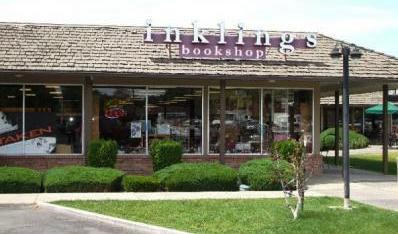 "For 18 years, Yakima Valley bibliophiles have been able to satisfy their cravings at
"For 18 years, Yakima Valley bibliophiles have been able to satisfy their cravings at 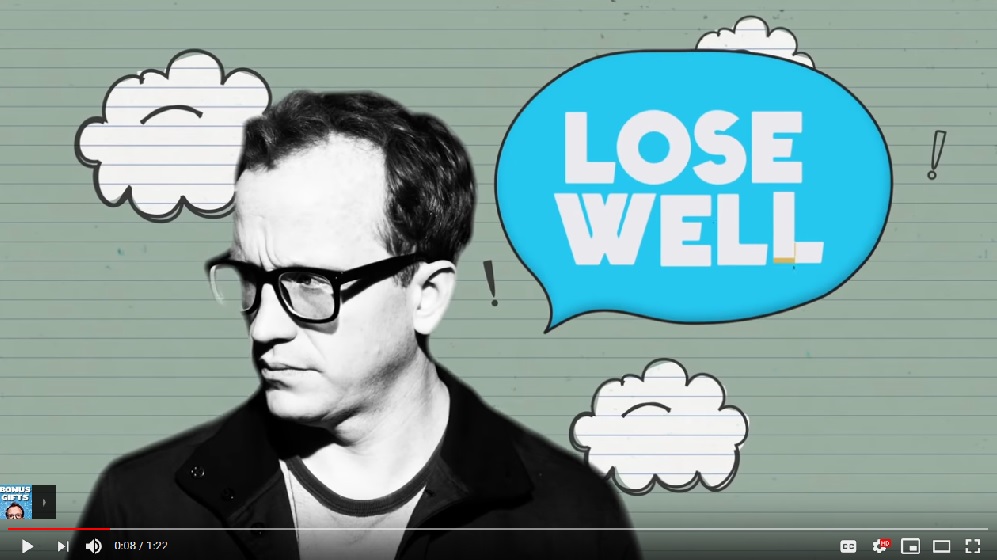 Lose Well
Lose Well Jonathan Lethem (
Jonathan Lethem (